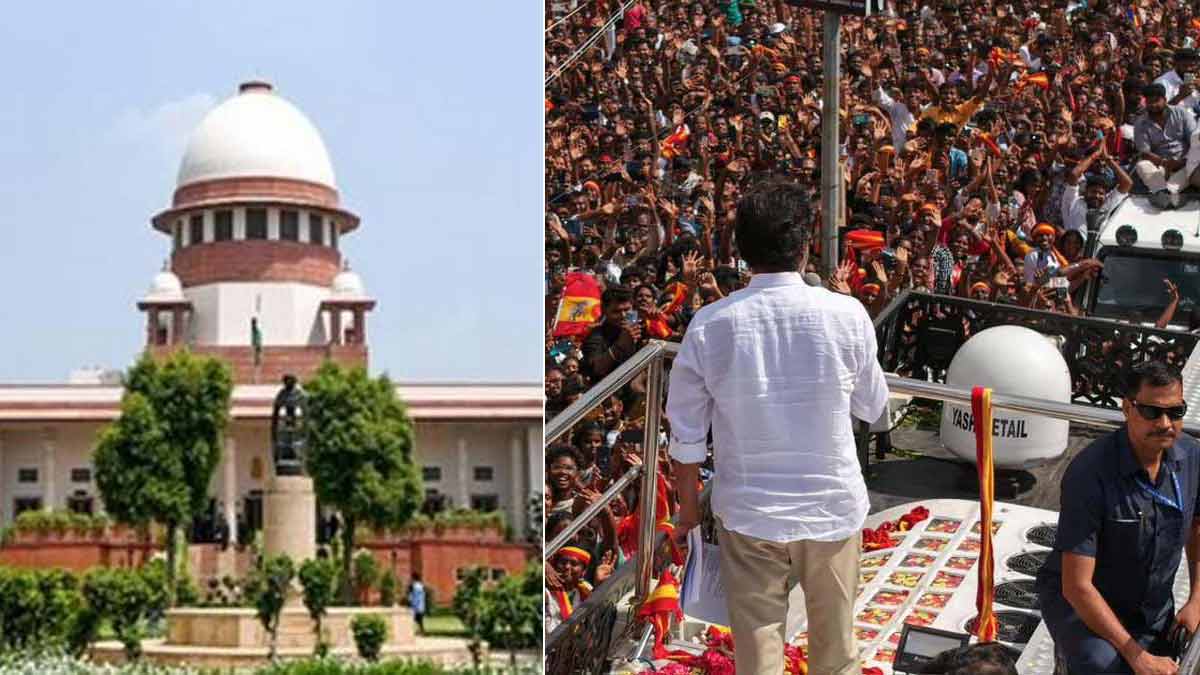Supreme Court Orders CBI probe into Karur stampede, pulls up Madras HC for ‘overreach’

The Supreme Court on Monday ordered a Central Bureau of Investigation (CBI) probe into the Karur stampede tragedy and expressed serious reservations over the manner in which the Madras High Court had taken suo motu cognisance of the incident and ordered a Special Investigation Team (SIT) probe.
A bench headed by Justice J.K. Maheshwari constituted a three-member monitoring committee, led by former Supreme Court judge Justice Ajay Rastogi, to oversee the CBI investigation. The committee will include two IPS officers belonging to the Tamil Nadu cadre, but crucially, they must not be natives of the state, the court clarified.
Serious concern over propriety
The top court’s strongly-worded order reflects a rare instance of judicial censure of a High Court judge for what it termed a breach of jurisdictional and procedural propriety.
“The learned single judge did not have any occasion to entertain or take cognisance of the matter during the pendency of the case before the Madurai Bench,” the order noted.
“Ignoring the fact that the chief minister had already constituted a one-man commission of inquiry, the single judge suo motu referred to the formation of an SIT without referring to any materials. Such recourse ignores propriety.”
Justice Maheshwari observed orally that this court had “seriously noted the functioning of the High Court” and emphasised that it would not hesitate to take cognisance if judicial processes were found wanting in fairness or discipline.
High Court’s overreach questioned
The controversy began after a stampede at a distribution event in Karur district—organised by the Tamizhaga Vetri Kazhagam (TVK), led by actor-turned-politician Vijayakanth—claimed 41 lives and injured several others. The Madras High Court, taking suo motu cognisance of the tragedy, had directed the constitution of a Special Investigation Team (SIT) and made sweeping remarks about political accountability and administrative failure.
However, the Supreme Court noted that the TVK was never made a party to the proceedings and that the High Court had extended the scope of the writ petitions beyond what was originally before it.
“Karur falls within the jurisdiction of the Madurai Bench,” the apex court underlined. “Such being the case, there was no reason why a single judge of the principal bench should have entertained the matter.”
It added that the High Court’s suo motu action was taken without adequate material and amounted to an improper assumption of criminal jurisdiction.
Call for explanation from the High Court
The Supreme Court has sought an explanation from the Registrar General of the Madras High Court, asking that the order be brought to the notice of the Chief Justice of the High Court.
“The above is a matter of concern and requires to be explained by the High Court on how the formation of a Standard Operating Procedure for political parties would fall within criminal jurisdiction,” the order said.
The bench emphasised that while the judiciary must remain vigilant in upholding accountability, institutional discipline and jurisdictional propriety cannot be compromised.
CBI probe to ensure fairness
Ordering the CBI investigation, the Supreme Court said it was doing so to ensure a fair and impartial inquiry, free from administrative or political interference. The monitoring committee under Justice Rastogi will ensure periodic oversight and report back to the court.
What lies ahead
The apex court’s order effectively nullifies the High Court’s earlier directions for a state SIT probe, transferring the case entirely to the CBI. The agency is expected to register a fresh FIR and take over all relevant materials and evidence collected by state authorities so far.
The Karur incident has already triggered a political storm in Tamil Nadu, with the ruling DMK and opposition parties trading charges over administrative negligence and crowd control failures.
India